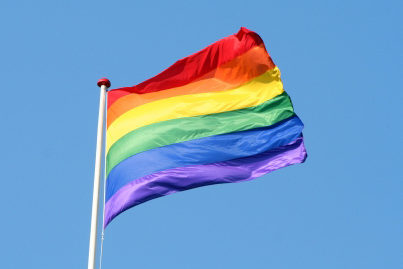Supreme Court’s reconsideration of Section 377’s constitutionality is a watershed opportunity to uphold the rights to freedom and equality of every LGBT person, the ICJ said today.
As India’s Supreme Court concludes a week of hearings on the constitutionality of Section 377 of the Indian Penal Code, the ICJ expressed hope that the Court will take the opportunity to invalidate the provision, and take a further step toward the recognition and protection of the full breadth of human rights of LGBT individuals.
In a Briefing Paper issued today by the ICJ on Navtej Singh Johar et al v. Union of India and Others the ICJ further urged the Indian Parliament to repeal the provision entirely.
The Section 377, in effect, criminalizes not a sexual act, but the identity of every LGBT person in India.
The importance of this case emerges from the recognition in international law and in India’s constitutional law that every human being has a right to be free and equal, regardless of one’s real or imputed sexual orientation, gender identity, and expression
The Court has heard arguments in Navtej Singh Johar et al v. Union of India and Others, in which it will reconsider its decision in Suresh Kumar Koushal that upheld the constitutional validity of Section 377, which criminalizes consensual same-sex relations.
The petitioners have argued that the existence of Section 377 deprives them of a number of rights and that the provision is vague, excessive, arbitrary and unreasonable.
“A ruling that Section 377 is unconstitutional would be truly momentous from a human rights perspective,” said Frederick Rawski, ICJ Asia-Pacific Director.
“Such a ruling would not only have impact in India, but would have transnational value, especially across other common law countries, and will provide an impetus to other countries to critically consider the lawfulness of similar provisions that criminalize consensual sexual relations, as being per se contrary to human rights,” he added.
On its face, and in its unjust and arbitrary application, Section 377 is incompatible with India’s international human rights law obligations.
In its 2017 report Unnatural Offences: Obstacles to Justice in India Based on Sexual Orientation and Gender Identity, the ICJ documented how the Indian justice system discriminated against people based on sexual orientation and gender identity, and documented the challenges queer persons face trying to access justice. In the report, it called for the repeal of Section 377.
Under international law, discrimination on the grounds of sexual orientation and/or gender identity is strictly prohibited.
As set out by the Office of the UN High Commissioner of the Human Rights (Born Free and Equal: Sexual Orientation and Gender Identity in International Human Rights Law, OHCHR, 2012), States have five core international human rights law obligations to protect LGBTI rights:
(1) protecting individuals from homophobic and trans-phobic violence; (2) preventing torture and cruel, inhuman, and degrading treatment of LGBTI persons; (3) decriminalizing homosexuality; (4) prohibiting discrimination based on sexual orientation and gender identity; and (5) respecting the freedom of expression, association and peaceful assembly of LGBTI persons. Section 377 violates them all.
“It is encouraging to note the increasing import of international human rights standards, including the Yogyakarta Principles, in relation to sexual orientation and gender identity, in Indian Courts’ jurisprudence,” said Rawski, noting the landmark cases of Naz Foundation v. Government of NCT of Delhi and Others, and National Legal Services Authority v. Union Of India and Others, which cited the Yogyakarta Principles.
The Yogyakarta Principles were also relied upon by petitioners in Navtej Singh Johar et al v. Union of India and Others.
Contact
Maitreyi Gupta (Delhi), ICJ International Legal Advisor for India, e: maitreyi.gupta(a)icj.org, t: +91 7756028369
Read also
ICJ Practitioners’ Guide No. 4: Sexual Orientation, Gender Identity and International Human Rights Law which provides legal practitioners, activists and policy-makers with detailed and practical references on international standards on sexual orientation, gender identity, gender expression, and sexual characteristics.
ICJ Comparative Law Casebook: Sexual Orientation, Gender Identity, and Justice: A Comparative Law Casebook, which provides legal practitioners, activists and policy-makers a compilation of cases and analyses on sexual orientation, gender identity, gender expression, and sexual characteristics.
ICJ India 2017 Report: “Unnatural Offences” Obstacles to Justice in India Based on Sexual Orientation and Gender Identity which provides a legal analyses of the discriminations and abuse faced by the LGBTI community in India based on over 100 interviews with LGBTI persons.
Briefing Paper on Navtej Singh Johar in English (PDF): India-Briefing Paper Navtej-Advocacy-Analysis-2018-Eng

